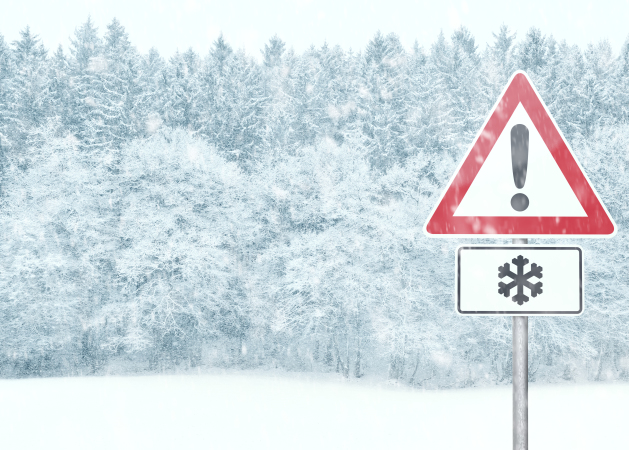Ensure equipment is winter-ready
The certainties of changing winter weather conditions are upon us. To ensure safety while avoiding downtime, it is crucial for equipment to remain winter-ready.
For the months of below freezing temperatures, proper winterization service for your equipment is key. Keep equipment checked and maintained on a daily basis to reduce your risk of being stranded on the side of the road in unforgiving conditions.
While not everyone is maintenance savvy, it’s important to know how to recognize the signs of potential problems in key areas of equipment.
Keep fluids topped up and use a quality formula that can withstand temperatures as low as -45 C. Have lots of washer fluid on-hand and inspect your windshield wipers daily for rips and tears.
Inspect the condition of your coolant hose and make sure connections are secure and leak-free. Use a quality air line antifreeze to protect the lines and valves from freezing. Be aware of the differences in formulas; use only an air brake-specific product, as standard methyl hydrate tends to dry out seals and attack the pistons in brake valves, which can lead to bigger brake problems.
Add diesel fuel conditioner during the winter months to avoid gelling of the fuel in freezing temperatures. This can also help clean and lubricate the fuel injectors, which aids in engine performance. For vehicles that use diesel exhaust fluid (DEF), ensure you are using a quality product. DEF is water-based and thus prone to freezing; you’ll need to keep spare jugs in a heated space to prevent DEF from freezing. Keep DEF out of direct sunlight.
Ensure your equipment has enough power to start. Inspect the block heater cord condition. Over time, the cord can become damaged due to water, salt and heat from the engine.
Check the cord has no frays or exposed wires, and that you’re plugging into a heavy gauge outdoor extension cord. While a battery tester can verify the state of the charge of the batteries, it’s also important to check that the battery cables are in good condition with no frayed ends and that connections are tight and clean. Use a corrosion inhibitor at the connection points to ensure good contact and to reduce corrosion caused by salt.
Believe it or not, cooling system maintenance is a necessary exercise as temperatures drop below the freezing point. Examine the radiator system for leaks, loose or damaged hoses, as well as cracked and worn belts. If left unchecked, you may find yourself without a cab heater when you need it most.
When it comes to good traction, tire choice is important. While low treads may be acceptable on dry pavement, it becomes a safety hazard in slick winter conditions. This goes for both the drive and steer tires. Trailer tires are equally as important. Depending on where you travel, tire chains may be required. Inspect the chains for broken links or bent clasps. In addition, you’ll need a good supply of bungee cords when chaining up.
Keep snow and ice cleared off windows and mirrors. Defrost windows completely to ensure good visibility before you set off on your route. It is critical for drivers to be able to see, as well as to be seen, in poorly lit conditions. Blowing snow and whiteouts can affect visibility so it’s important to make sure all lights are working and clear of snow to maintain full visibility. LED tail lights require extra attention, as snow does not melt like it does with incandescent lights.
Have safety-related items in your vehicle at all times during the winter season; they will come in handy if you find yourself stranded. A bag of sand or ice melt can offer some added traction on slippery surfaces. Keep the following with you for unforgiving winter storms: ice scraper, snowbrush, small shovel, tow chain, booster pack and flashlight.
Of course, preparations are not limited to your equipment. A winter kit including extra warm clothes, food, water, gloves, a winter hat, and a blanket can make all the difference if you’re stranded. A small candle in a jar can provide light and a bit of warmth when used properly.
All of these steps puts everyone on a safer path, no matter what challenges the cold weather may bring.
***
This month’s expert is David Goruk. David is a risk services specialist and has served the trucking industry for more than 25 years providing loss control and risk management services to the trucking industry. Northbridge Insurance is a leading Canadian commercial insurer. Working with our broker partners, we focus on understanding the needs of our customers and on creating solutions that make a difference to their success.
Have your say
This is a moderated forum. Comments will no longer be published unless they are accompanied by a first and last name and a verifiable email address. (Today's Trucking will not publish or share the email address.) Profane language and content deemed to be libelous, racist, or threatening in nature will not be published under any circumstances.